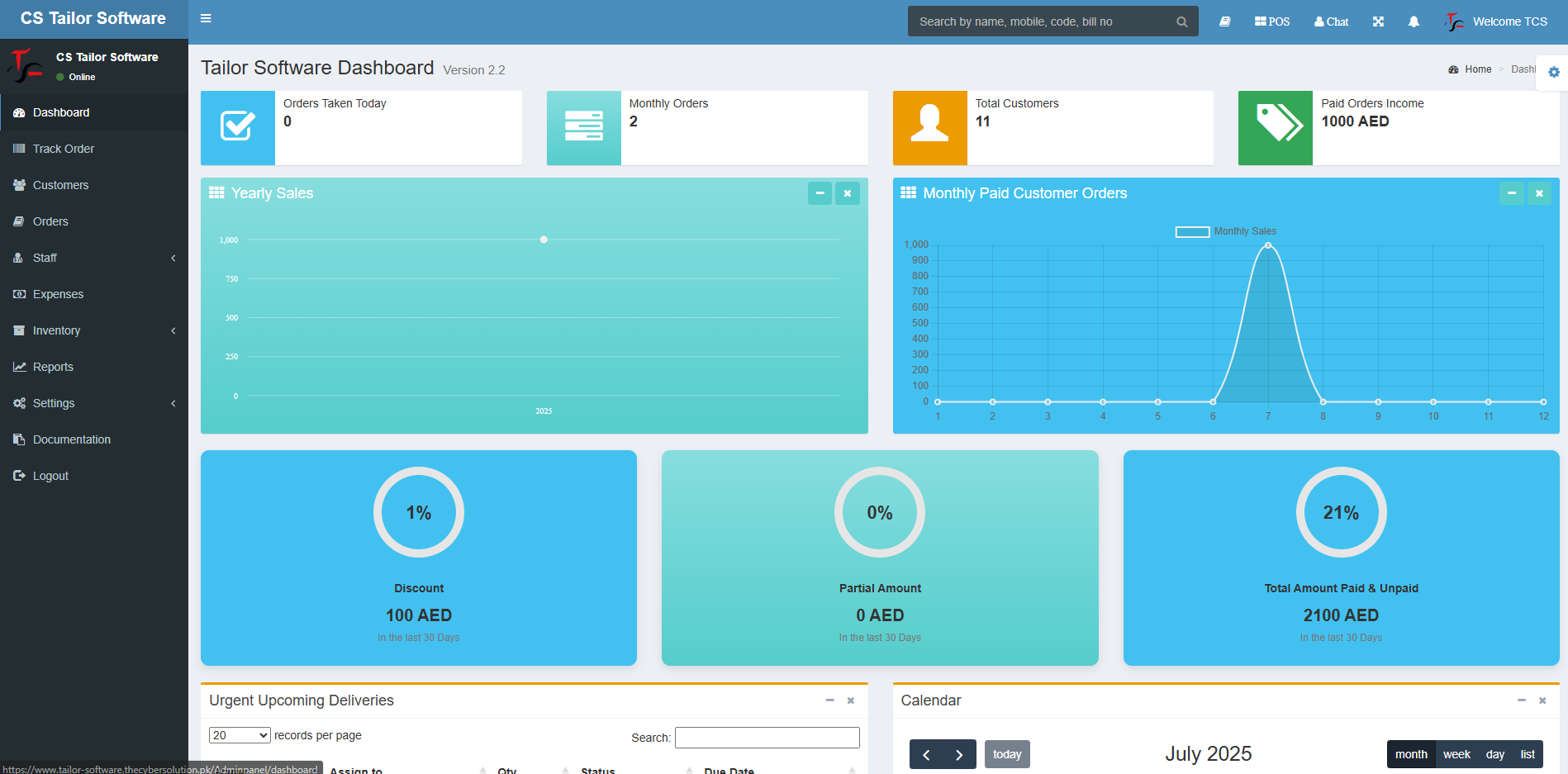Leading Cloud Security Threats for 2023 | How to Tackle Leading Cloud Security Threats
Leading Cloud Security Threats for 2023 and how to tackle
The increasing adoption of cloud technology has brought with it a range of new Leading Cloud Security challenges. To mitigate these risks, organizations need to implement robust security measures and stay vigilant against evolving threats.
Mon 01 - May - 2023 1658 0
The advent of scalable and affordable computing resources offered by the cloud has completely changed how businesses operate. But as cloud computing becomes more widely used, organizations of all sizes are becoming more and more worried about the risk of data breaches and cyber-attacks.
We'll talk about the top 5 cloud security risks for 2023 and how businesses can reduce them.
Data Breach.
For instance, a significant financial services company called Capital One experienced a data breach in 2019 that affected 100 million customers. These customers' names, addresses, credit scores, and bank account numbers were among the personal information that was accessed and possibly stolen during the breach. Due to the expense of responding to the breach and potential legal repercussions, this data breach resulted in both reputational harm to Capital One as well as financial losses.
Organizations must take precautions to safeguard their sensitive information and stop unauthorized access because these types of data breaches are becoming more frequent. This entails putting in place strong security measures, routinely checking their systems for vulnerabilities, and training staff members on security best practices.
Two Microsoft services that assist organizations in preventing data breaches are Microsoft Azure Information Protection and Microsoft Azure Active Directory. While Azure Active Directory offers identity and access management to control and monitor access to sensitive data, Azure Information Protection enables organizations to classify and protect sensitive information with encryption and access controls. When combined, these tools offer a complete solution for preventing unauthorized access to sensitive data, lowering the probability of a data breach, and enhancing an organization's security posture.
Attacks from Malware and Ransomware:
Malicious software, such as ransomware and malware attacks, can compromise cloud systems and cause significant harm and disruption. The 2019 ransomware attack on the city of Baltimore, which cost the city over $18 million, is a well-known example. Strong security measures, employee training, and the presence of a disaster recovery plan should all be implemented by organizations to stop these attacks. Organizations can lessen the risk of malware or ransomware attacks and lessen the harm these incidents cause by taking the steps listed above.
Solution:.
Microsoft provides a number of defenses against ransomware attacks, including Windows Defender Advanced Threat Protection (ATP), which guards against ransomware and other cutting-edge threats in real-time. Additionally, companies can store their data in the cloud with Microsoft's OneDrive and SharePoint services, where it can be easily backed up in case of a ransomware attack and recovered.
Account Hijacking:
Using stolen credentials, such as login and password details, account hijacking refers to unauthorized access to cloud accounts. Because it can result in data theft, financial loss, and reputational harm, this kind of attack may have far-reaching effects on organizations.
Through phishing scams, malware attacks, or data breaches, an attacker typically gains access to a victim's login and password information in order to hijack their account. The attacker then makes use of this information to access the victim's cloud account, potentially gaining access to private information like financial or personal identification information. The operations of an organization may occasionally be severely disrupted if the attacker has the ability to modify or delete data.
Strong authentication procedures, like multi-factor authentication, should be implemented by organizations to prevent account hijacking.
In order to prevent account theft, Microsoft Azure offers a number of security features, such as:.
Multi-Factor Authentication (MFA): Azure offers MFA as a built-in security feature to make sure that only authorized users have access to your cloud resources. Account theft may become less likely as a result.
A unified risk assessment of sign-ins to your organization is provided by Azure AD Identity Protection, a feature that aids in the detection and prevention of security risks like account hijacking.
Azure Key Vault: Azure Key Vault is a safe and widely accessible key management service that enables you to safeguard sensitive data, such as secrets and certificates, from unauthorized access and hijacking.
Lack of Encryption:
For businesses, not encrypting sensitive data stored in the cloud can be a serious security risk. Any person with unauthorized access to the cloud environment, whether as a result of a data breach or a malicious attack, can easily access unencrypted data. As a result, sensitive data, including financial information, identity information, and secret business information, can be easily stolen and used maliciously.
Unauthorized modification of unencrypted data can result in data corruption and loss of integrity. Organizations may suffer serious repercussions as a result, such as financial losses, reputational harm, and legal penalties.
Solution:.
In order to reduce the risk posed by unencrypted data, Microsoft Azure offers the following features.
Azure Disk Encryption is a feature that enables you to encrypt the disks of virtual machines (VMs) in Azure. By ensuring that it is encrypted both at rest and in transit, this helps to protect sensitive data stored in the cloud.
Using a feature called Azure Confidential Computing, you can safeguard sensitive data while it is in use. In spite of an attacker gaining access to the system's underlying hardware or operating system, this helps to ensure that data is protected.
Azure Storage Service Encryption is a feature that enables you to encrypt data kept in Azure Files and Blob storage. This aids in shielding private information from theft and unauthorized access.
The banking and financial services industry is expected to be the most impacted by cloud security incidents, with the market for cloud security expected to reach $10 billion globally by 2023. In 2020, a data breach would have cost an average of $3.86 million.
Numerous new security issues have emerged as a result of the growing use of cloud computing. To lessen these risks and safeguard their systems and data, organizations must maintain vigilance and put strong security measures in place.
A variety of new security challenges have emerged as cloud technology is being adopted more widely. Organizations must put in place strong security measures and be vigilant against emerging threats in order to reduce these risks. Through its adherence to industry standards, security-focused software development, encryption, and access controls, regular security assessments, employee training, and cloud management services, Intelegain Technologies, with its 20+ years of experience in specialized cloud services, and its status as a Microsoft partner, can assist organizations in reducing the risks associated with cloud security. Organizations can work with Intelegain Technologies to make sure that their cloud systems are safe and that sensitive data is shielded from hacker attacks and data breaches.
Cloud services are being misused:
When employees or contractors use cloud resources contrary to the organization's policies or standards, this is known as the misuse of cloud services. Employees risk doing this if they use cloud services for non-work-related tasks like storing personal files or using cloud-based applications.
As unauthorized or personal activities may introduce security vulnerabilities or compromise the privacy and confidentiality of sensitive information, the improper use of cloud services can put sensitive data at risk. For instance, if a worker stores confidential information on a cloud service without proper encryption or access controls, it may be accessed by unauthorized users.
Solution:.
Organizations should establish clear policies and guidelines for the use of cloud resources and offer employee training on these policies in order to prevent the misuse of cloud services. In order to spot instances of misuse and take appropriate action, organizations should routinely monitor the usage of cloud resources and access logs. Organizations can lower the risk of a data breach brought on by improper use of cloud services by putting these measures in place.
In conclusion, organizations face a serious risk from the misuse of cloud services, so it is critical that they take preventative action. Organizations can lower the risk of a data breach brought on by improper use of cloud services by establishing clear policies and guidelines, offering employee training, and monitoring resource usage.








